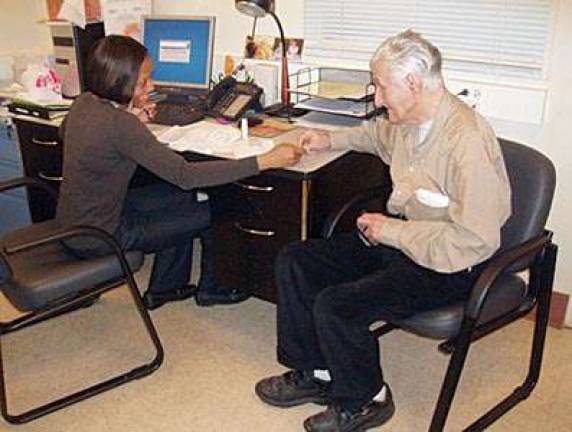Cuts Have Homebound Seniors Worried

New York City's senior population is often forced to endure the threat of budget cuts to programs that help them, and this year is no different. One of the programs in line for a potentially severe cut is the case management program run by the city's Department for the Aging (DFTA). The program's proposed 2013 budget is $14,926, over $3,000 less than 2012 and a 30 percent reduction from its actual spending in 2011. Locally, this would hit the case management program run out of Lenox Hill Neighborhood House, a program that serves 1,400 elderly and at-risk Upper East Side residents. "This would be really tragic for our homebound seniors who often don't have a lot of supportive family or community left," said Dina Zempsky, director of case management at Lenox Hill. While last year, entire senior centers faced potential closures when the state budget was deeply slashed before being restored by the Legislature, this year's possible cuts could hurt in less visible but still powerful ways. "Homebound elders are for the most part not a visible constituency, so it's very difficult for them to advocate because no one really thinks of them until their program is going to be cut," Zempsky said. Case managers are assigned to clients who may need assistance with tasks like paying their bills on time or going to the store. Some just need regular check-ins to make sure they're staying healthy, while others require more intensive assistance. Case workers often arrange for meal delivery and are sometimes the only people in regular in-person contact with the clients. Regardless of the type of case, the thing the program's participants have in common is that they can stay in their own homes as long as they receive some help. One typical client is Concetta Mannina, who is 85 years old and lives alone on Second Avenue in the East 50s. Her eyesight isn't too good, and as a result she can't do some things, like grocery shopping, on her own. There are services that send aides to seniors to help them run errands, but Mannina was too afraid to step outside with a virtual stranger until her case manager at Lenox Hill helped her overcome that fear. "What she did was give me confidence to, little by little, go into a program where I can have somebody help me out," said Mannina of her case worker. "They have sent me someone who has made me feel very confident. All of a sudden, you don't feel so bad." Mannina said that for a while, she didn't bother with errands and rarely left her home, crippled by fear and unsure of herself. When she began working with a case worker, she was able to talk out her problems and figure out how people could assist her. Zempsky said that this type of issue-one of confidence-is often the biggest hurdle for their clients. But if they get the support to keep living alone, they can avoid the often prohibitive expense of a nursing home and maintain their independence. Community Board 8 approved a resolution last year asking the DFTA to baseline the budget for this program and issued another resolution this year strongly opposed to the cuts, stating that further cuts to the program would "mean that many of the frail older adults it serves will be put at grave risk, fewer will be able to be served and the services available will likely be both few in number and less comprehensive, and waiting lists will grow." Zempsky said that the prospect of another round of cuts is too tough to even contemplate, but emphasized that none of their clients would be suddenly abandoned. It would, however, put a great strain on their resources and push the waiting list for the program into the hundreds, leaving many Upper East Side residents with few options for help. "We do everything we can to support folks living independently in the community," Zempsky said. "It's really really important that these funds don't get cut."